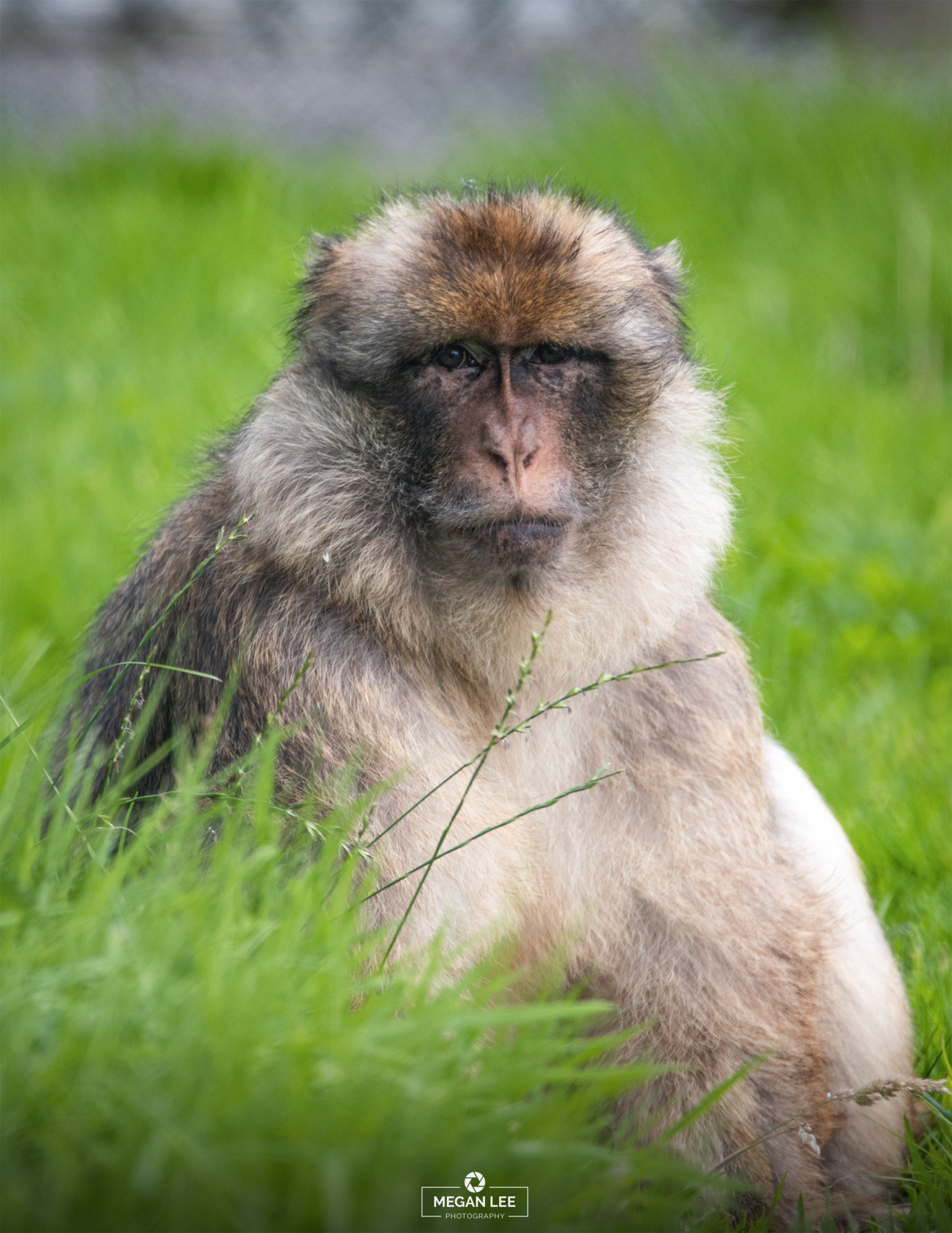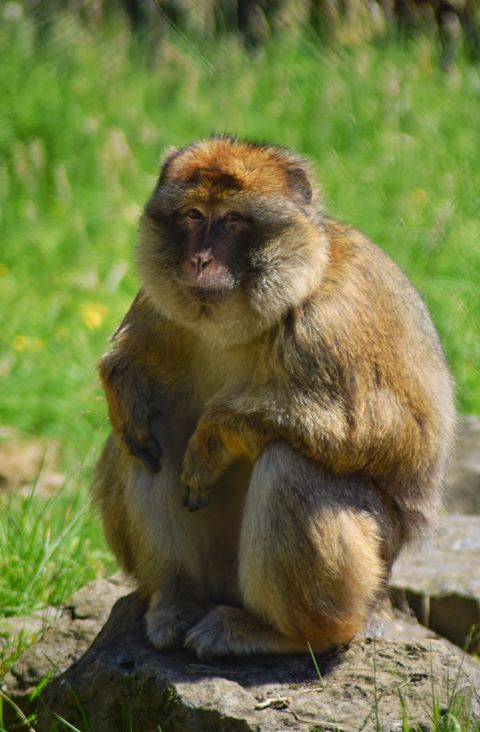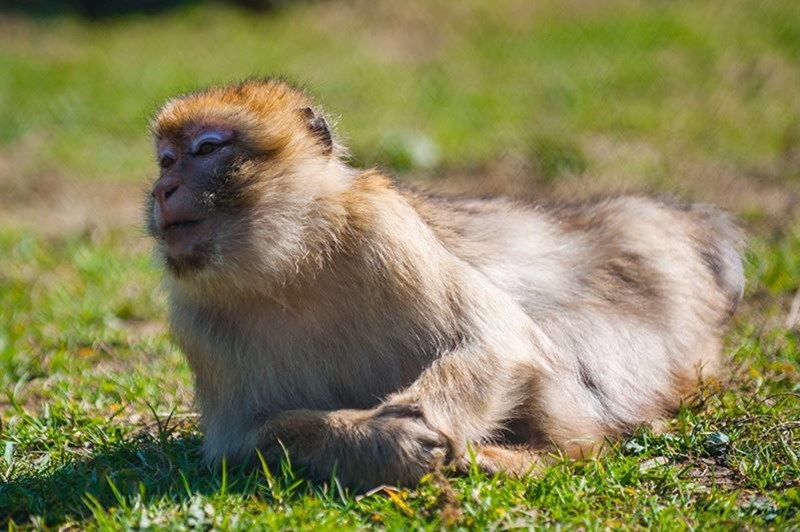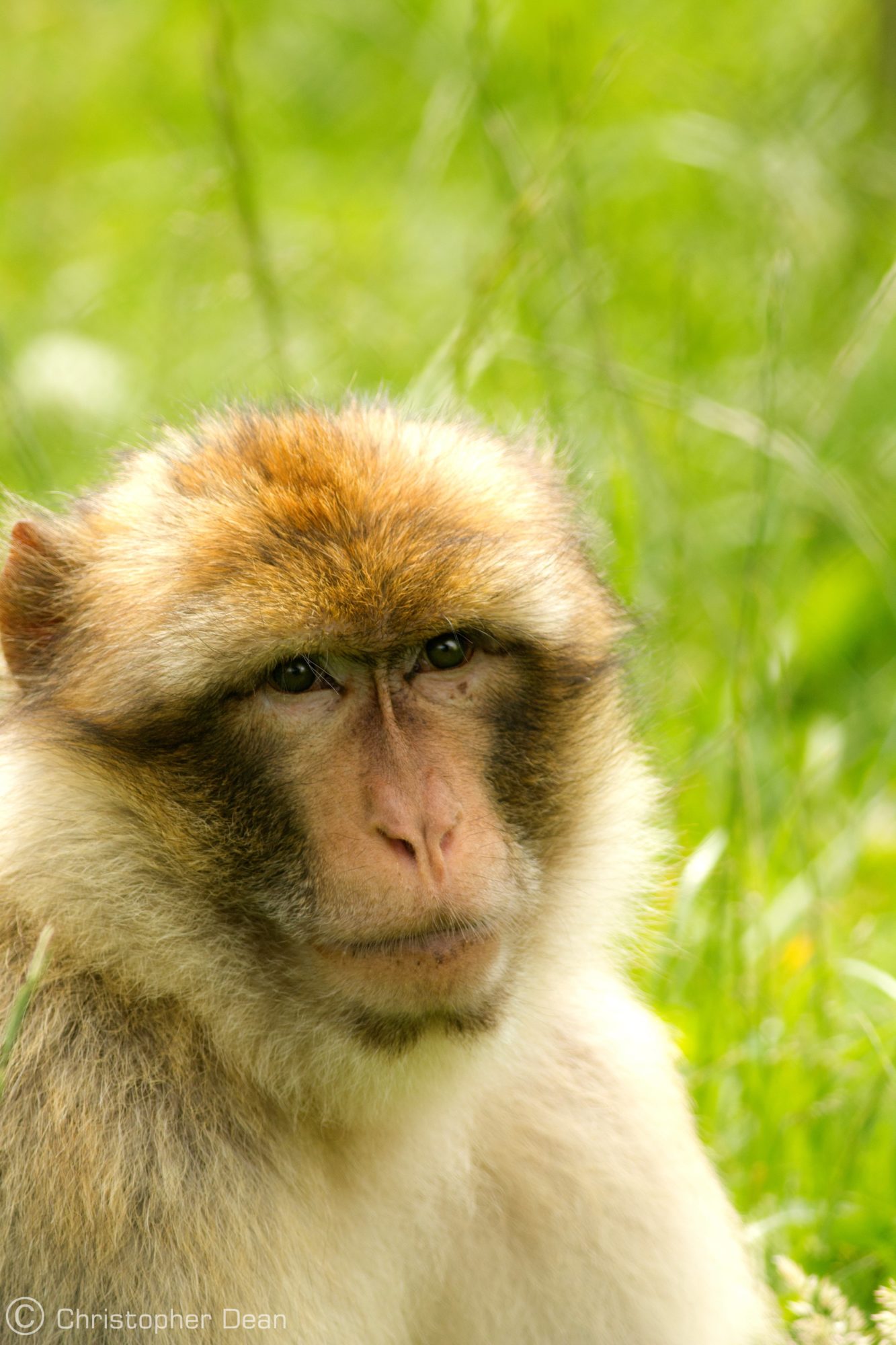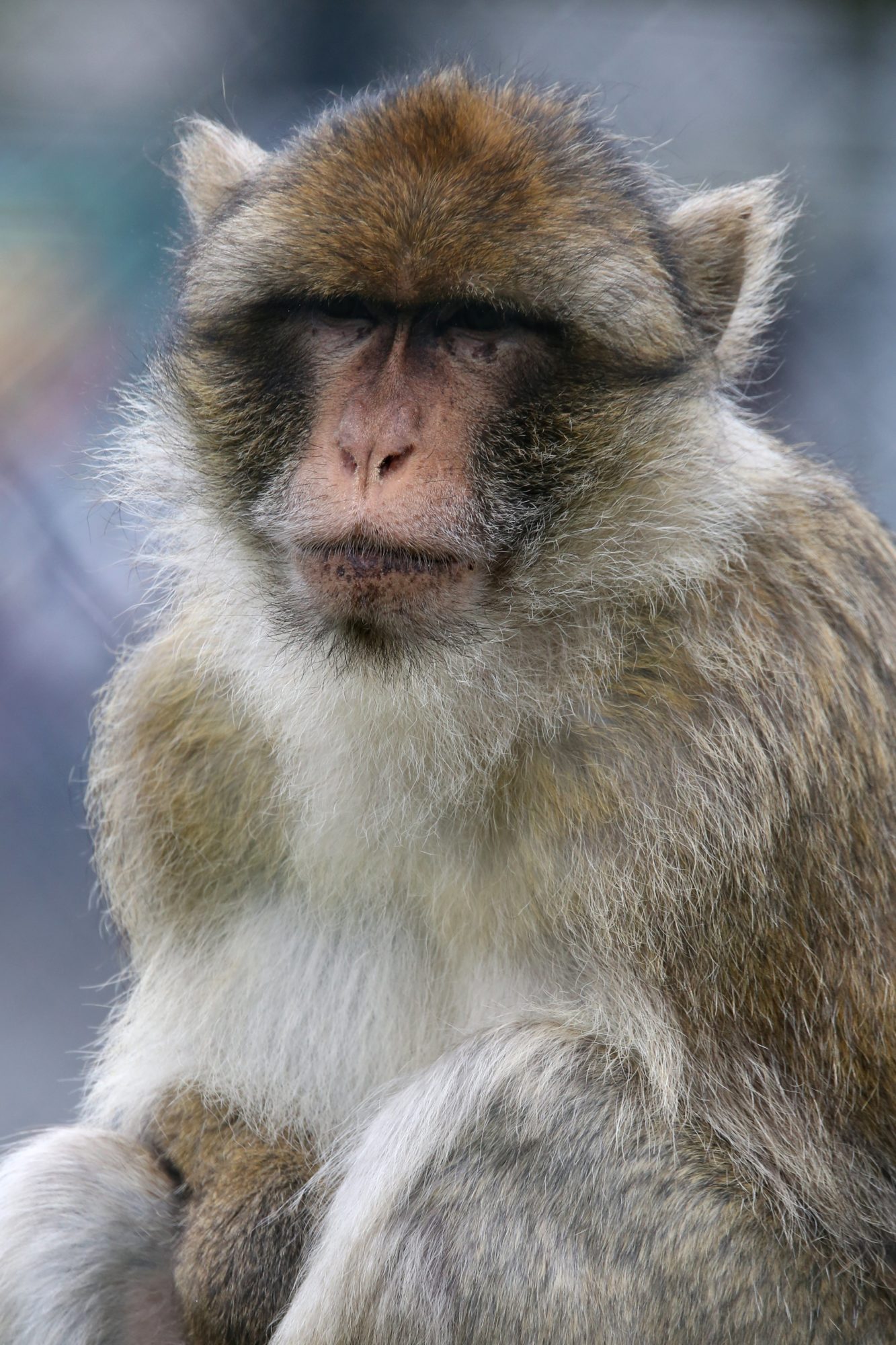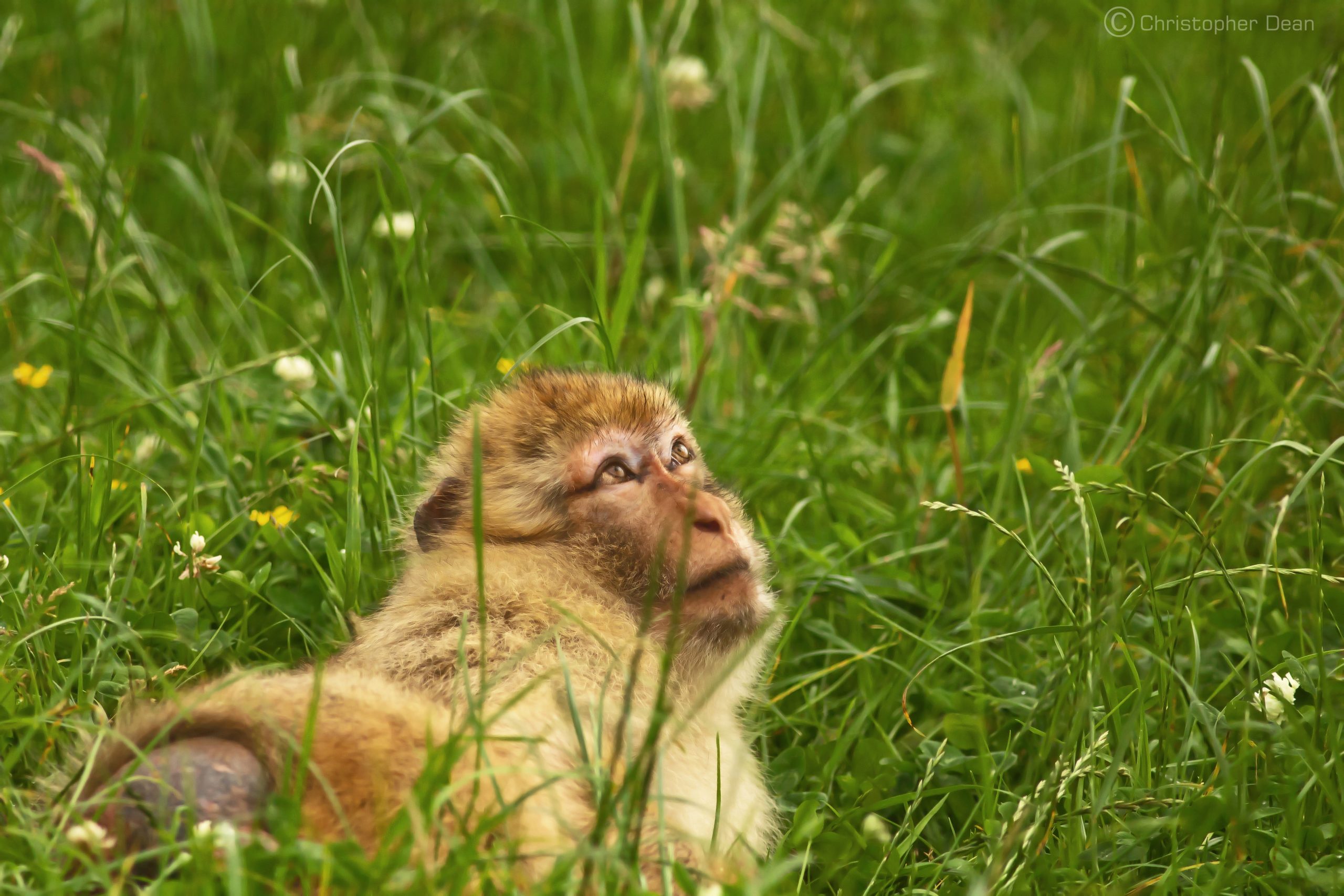

Originally found in Morocco and Tunisia, the macaque is known as the face of tourism on the Rock of Gibraltar.
They live in large groups and there is usually a matriarch, or dominant female, that oversees the entire group. Where there’s a leader there’s also a second and third in line and within a macaque troop it’s no different as there’s a definite hierarchy, or ranking system.
One thing you’ll notice about macaques is that they don’t seem to have a tail. They actually have what’s known as a ‘vestigial’ tail. This means that over time the macaque has evolved and the tail has all but disappeared as it’s no longer required.
It’s not unusual to see our macaques grooming each other. The reason they do this is to reduce their stress levels and also to strengthen the bonds within the group. Plus, it keeps their fur bug free!
If you see our macaques ‘chattering’ their teeth together, then don’t worry, it’s not a sign of aggression. In fact, it’s the complete opposite, it’s actually them being friendly towards one another and ‘smiling.’
Macaques have recently been re-classified from vulnerable to endangered status because roughly three hundred a year are being taken from the wild to be sold as pets. Also, the natural habitat of the macaque is under threat from logging (cutting down trees) and farmers see them as a pest and try to get rid of them.
The macaques you see at Folly Farm were once part of the illegal pet trade and we’re delighted we can play a small part in the conservation of these beautiful primates. On top of this we have supported the Barbary Macaque Awareness and Conservation (BMAC) work in Morocco for a number of years.
You can read about what we’re doing to help macaque conservation here.
Latin name
Macaca sylvanus
Class
Mammalia
Order
Primates
Family
Cercopithecidae
Conservation status
Endangered
Impress your friends with everything you know about the Barbary macaque!
Mainly plants and all sorts of insects.
About 20 years.
Yes, mainly eagles, leopards and dogs.
It’s not. Macaques actually practice something called ‘alloparenting’. This is where other macaques help look after the baby even if they’re not directly related to them.
